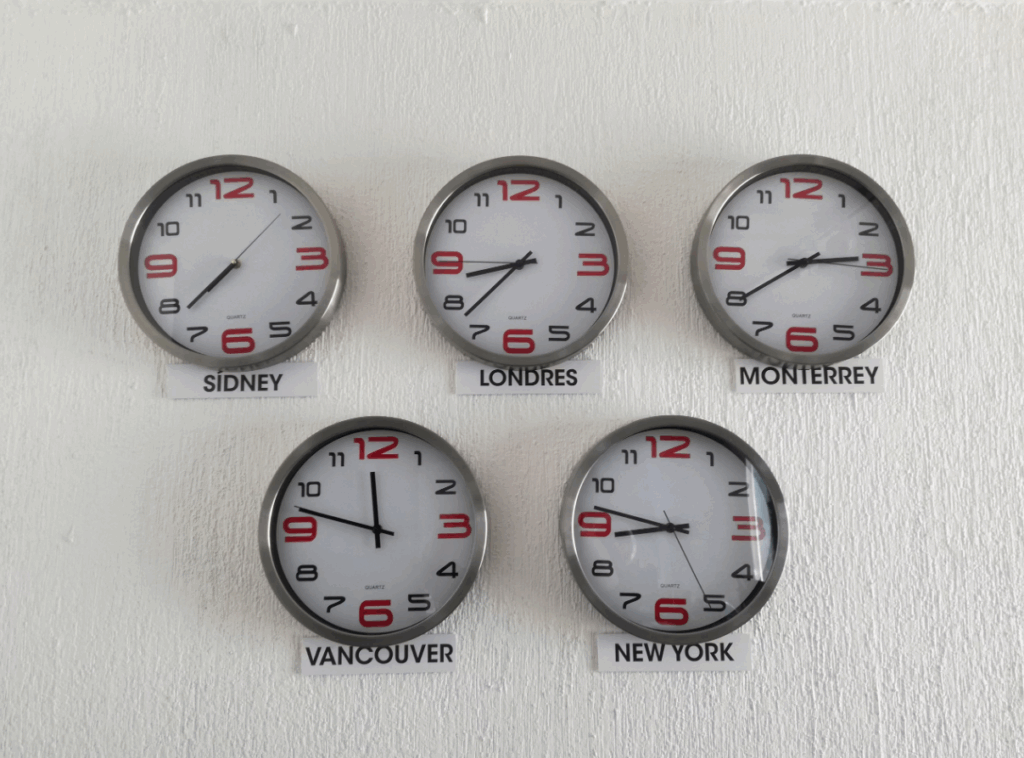
Like many tech-driven services, managed Service Providers (MSPs) can operate entirely remotely. In fact, some argue that remote work isn’t just viable—it’s often the smarter choice.
So, with all this flexibility, is there really any reason to hesitate when hiring abroad?
After all, going global gives you access to a much wider talent pool, makes it easier to find specialized skills, and even boosts workplace diversity. But while the benefits are clear, the challenges are often underestimated. You’ll be dealing with different work cultures, scattered time zones—a detail that’s surprisingly easy to overlook during the interview—and a host of legal or tax-related hurdles.
Hiring abroad for MSP can be a game-changer—if you know what pitfalls to avoid. Here are some tips to help you steer clear of common mistakes and find the perfect fit for your team.
Don’t Ignore the Time Zone Difference

Time zone mismatch might sound like a minor logistical problem, but it can turn into a huge mess if you’re not careful. You see, if your new hire is on the other side of the world, even a simple “let’s meet at 9” can mean wildly different things. It’s easy to lose track of what’s reasonable working hours for whom.
Specialists from the MSP staffing agency claim that the bigger issue isn’t just scheduling meetings—it’s response time. If their day starts when yours ends, any urgent issues will wait a full day to get acknowledged. In the MSP help desk world, where clients expect a quick turnaround, that kind of delay can cost you reputation, revenue, or both.
Moreover, a poorly aligned time zone can affect morale on both ends. If you expect someone to routinely be online at 2 a.m. just because that’s when your clients need support, burnout will follow fast. And if you’re the one staying late to sync up, you’ll resent the entire setup before long.
It doesn’t mean you shouldn’t consider hiring abroad for MSP support—it just means you need to plan smarter. Build a schedule that overlaps for at least a few key hours a day. Set expectations upfront. That small detail can turn a strained work relationship into a smooth and productive one.
Don’t Assume Everyone Works the Same Way
Different countries, different rules—and that applies to how people work, too. You see, what feels like common sense in your workplace might not even be a thing somewhere else. Some people take pride in asking questions right away, while others see too many questions as a sign of incompetence. That alone can create a weird dynamic if no one addresses it early on.
Experts in outsourced MSP staffing services claim that team communication styles can vary wildly across different regions. In some cultures, saying “no” directly is perfectly fine. In others, people will dodge or deflect to avoid confrontation. If you expect bluntness and instead get silence, you might misread it as agreement, and that miscommunication can snowball into bigger issues down the line.
Attitudes toward things like hierarchy, deadlines, or overtime can shift depending on background. Someone might feel uncomfortable contradicting a senior manager even if they spot a clear issue. Others might feel that once the clock hits five, their workday is over, no matter what’s pending. That can be jarring if you’re used to a different rhythm, especially when working in MSP help desk jobs that require 24/7 responsiveness.
The trick isn’t to force your style onto them or tiptoe around differences. It’s about setting shared expectations and being clear about how your remote work MSP team operates. If you do that early, you’ll avoid a lot of head-scratching moments later.
Don’t Skip Local Compliance Research

Hiring someone in another country means you’re playing by their rules, not just yours. It might feel like you’re just sending money to a freelancer overseas, but the local authorities may see it very differently. You see, misclassifying someone as a contractor when they’re legally considered an employee can get you into a lot of trouble, both there and at home.
Depending on the country, you might be responsible for things like paid leave, social security contributions, or severance pay—even if it’s a short-term deal. Miss one of those obligations, and you risk legal issues, fines, or even getting blacklisted from hiring abroad for MSP roles in that country again.
Moreover, data privacy laws aren’t uniform. Some countries have strict regulations around where client data is stored or who can access it. If your international hire is logging into sensitive systems, you better make sure that setup is compliant—or you could violate laws like the GDPR without even realizing it.
All of this sounds messy, but it doesn’t have to be. Either work with an Employer of Record (EOR) or use hiring platforms that handle local compliance for you. If you want to build a long-term remote work MSP team, skipping this step is a risk you don’t want to take.
Don’t Rely Only on Resumes and Certifications When Hiring Abroad for Your MSP
On paper, someone might look like a tech superstar—certifications stacked high, glowing resume, maybe even a few recognizable company names. But you see, in the MSP help desk world, experience doesn’t always translate well across borders. A certification might sound impressive, but its value really depends on where and how it was earned.
Resumes are built to impress. Everyone knows the keywords to include, the buzzphrases that get through filters. But what you want is someone who can actually troubleshoot real problems, not just someone who knows how to format a PDF to get past HR software.
Some people are excellent at interviews but stumble when faced with the actual work. A short technical assessment can go a long way in showing you whether someone understands systems, tickets, and workflows, or if they just memorized a few scripts.
The goal is to find someone who thrives in your specific work environment, not just anyone who looks good on LinkedIn. For MSP help desk jobs, a 20-minute trial project or shadowing session can tell you far more than three pages of polished fluff. Trust your hiring process, not just the paper trail.
Don’t Treat Onboarding Like an Afterthought

You finally hired someone, great—but your work isn’t done just yet. Onboarding is more than just sharing a Google Doc with login details. You see, this is the moment that sets the tone for the whole working relationship. If your new hire feels lost or unsupported, they’ll disengage before they even get started.
Also, remote hires don’t get the benefit of leaning over to ask a coworker a quick question. If you don’t build a solid onboarding process with clear steps, walkthroughs, and expectations, they’ll hesitate to ask for help—and that’s when mistakes start creeping in. This matters even more in MSP help desk jobs, where missing a beat can create a real customer issue.
Moreover, company culture doesn’t spread through email alone. If you want them to understand how your team works, who to reach out to, or how to flag a serious issue, you need to build those things into the onboarding. Otherwise, they’ll default to what they know—and that might clash with how you do things.
If you’re serious about hiring abroad for MSP, then treat onboarding like a core part of the plan. It’s not just about giving someone access—it’s about helping them succeed from day one. That first week can make or break everything that follows.
Wrap Up on Hiring Abroad for MSPs
Hiring abroad for MSP roles can seriously level up your team—if you approach it the right way. It’s not just about filling seats or stretching your budget. You’re building a long-distance working relationship that still needs structure, trust, and support. That’s why details like time zones, clear onboarding, and real compliance matter so much.



0 Comments